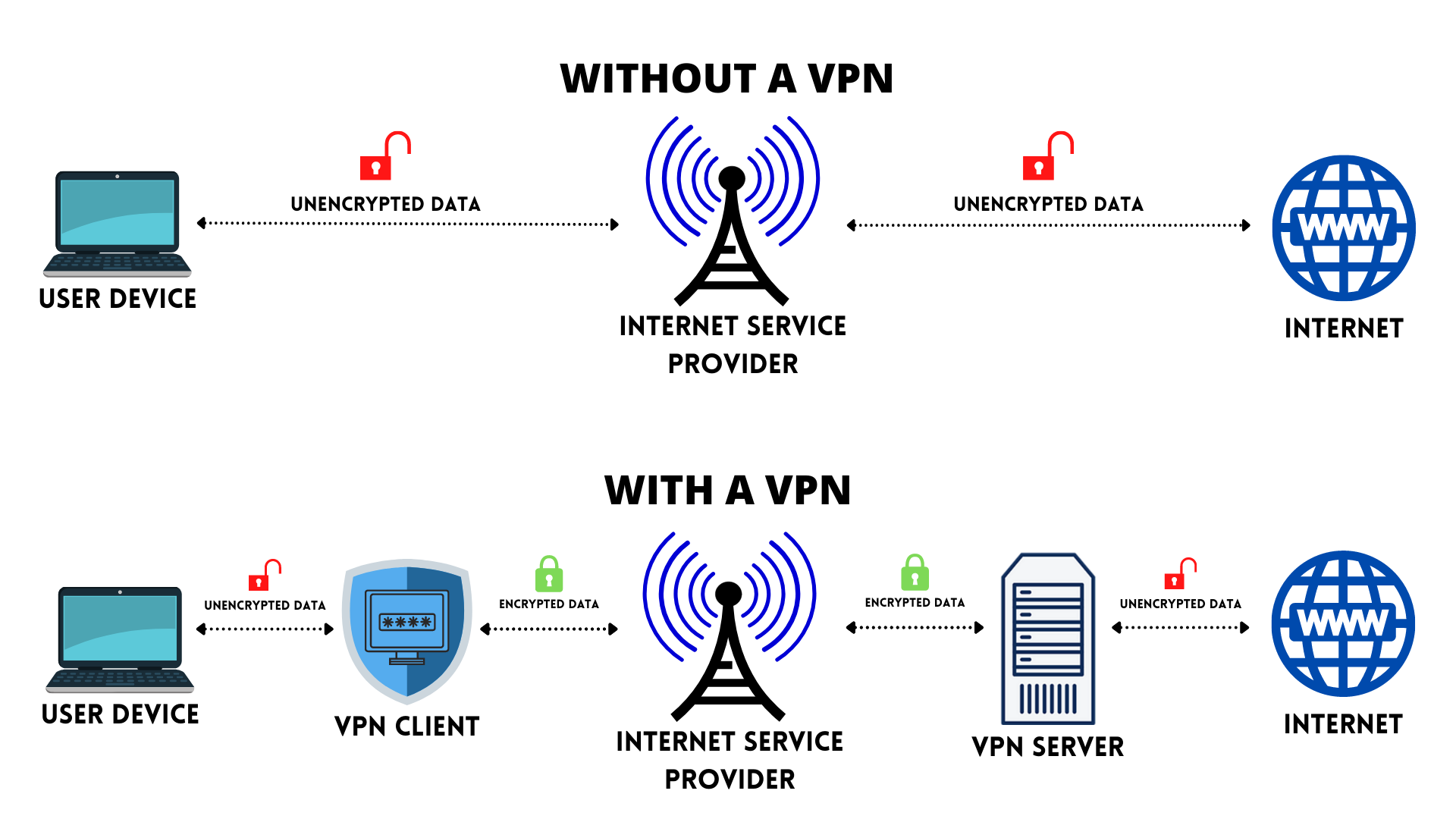
Along with the worries about public health and safety, the 2020 COVID-19 pandemic forced the world to consider home-office and remote services much more seriously. And, with the increased number of Canadians working from their laptops and ordering things from their smartphones at home, cyber security has become a lot more important for consumers, employees and corporations.
An example of that is the search for and adoption of VPN services. Although it’s already something common for tech and bank industries, that layer of protection has been gaining users year after year.

A VPN, or a virtual private network, is a tool designed to let users send or receive data to private networks through public networks as if they were connected through a private one. In other words, it makes your digital fingerprint more difficult to track.
During March of 2020, the search on Google for the term “VPN” doubled and reached its all-time peak since 2019. And according to data from NordVPN, one of the most well-known providers in the Western hemisphere, it’s worldwide business services grew 165%. With Canada consumption, in particular, increasing by 206%.
However, despite the increased search for security measures, the number of cybercrime incidents grew 31% in the same period in comparison to 2019. That means that over 63,000 Canadians were victims of cybercrimes in 2020.
Oh, Fudge
In 2021, there were over 4,000 cyberattacks in Canada, costing about $518 million. Within those numbers, 5.7% of Canadians had their accounts hacked.
Katy Fudge is a 29-year-old pastry chef from the GTA who had her Facebook and Instagram accounts hacked last year. Her two accounts were taken over from a device she did not recognize. “I woke up in the middle of the night to an email saying that a device that I didn't recognize had access to my Facebook account. Then, an email came saying that I had changed my password, which obviously I didn’t. After that, another email said that I had changed my password on Instagram, which, again, I obviously didn’t.”

“Whoever it was that hacked my account had changed my email. All of the correspondence was being redirected to this new email. Everything that I was trying to do, unfortunately, was going to this hacker instead of back to me.”
She was only able to recover her accounts later through the Trusted Friends feature on Facebook. That allowed three of her closest friends to verify that her account was hacked and help her recover them. Now, she is more aware of cyber threats and takes extra precautions to keep her accounts and information safe.
“I set up two-step verification wherever it was possible. It just adds that extra layer of protection. I also use a VPN and just take whatever other precautions I can.”
Threat on the corporate scale
Individuals are not the only ones who suffer these attacks. Companies and even governments also saw a large number of ransomware attacks in 2021. Since the beginning of the pandemic, ransomware attacks increased 151% in Canada, forcing companies to invest more in cybersecurity and improve their online protocols.
Cyber-attacks widely affect Canadian companies. According to the 2020 Cyberthreat Defense Report, “four out of five organizations experienced at least one successful cyberattack and more than one-third [of them] suffered six or more.”
The good, the bad, and the safe
As the success rate of cyber-attacks continues to grow, cyber security advances are also growing just as quickly. So, according to 27-year-old software engineer Brad Connolly, who has been in the industry for over 5 years in Guelph, Ontario, it’s hard to say who has the upper hand.
“People who are in cyber security are very smart and their networks are super robust. That being said, cyber-criminals are also quite smart.” Connolly stated, “Who has the edge depends on the scale of who you are talking to, and technically [the advantage] could go either way.”
How can you protect yourself?
But a VPN service is far from being the digital saviour from malicious activity. According to research from multiple firms and groups, phishing techniques are the most common way to begin a cyber attack or invasion.
Phishing is a technique where the hacker tricks you into giving them sensitive information. That means the hacker doesn’t have to bypass your firewalls or antivirus to get to your device, instead, he just needs to fool you – and no VPN or antivirus can save you from that if you’re not careful.
“You are untraceable in the sense that someone can't jump in and find out your IP address. But it doesn't mean you're completely invisible on the internet.”
So, according to experts like Connolly, being safe online goes way beyond hiring specific services. It’s about being educated on how to safely navigate online and aware of the techniques used to steal your information.
For example, frequent password changes, or the use of a password manager, can help a lot to keep hackers at bay. Everything from your router to your social media accounts should have their passwords changed from time to time – just in case.
He also says to be cautious about what you click and what you download online, as that’s how plenty of cyber criminals gain access to your files. So long as you take care online, you can navigate this newly digital world with relative ease.
Article by Jack Dion, Melanie Pileggi, Pedro Ambrosio and Spencer Legace | Toronto




Be the first to comment